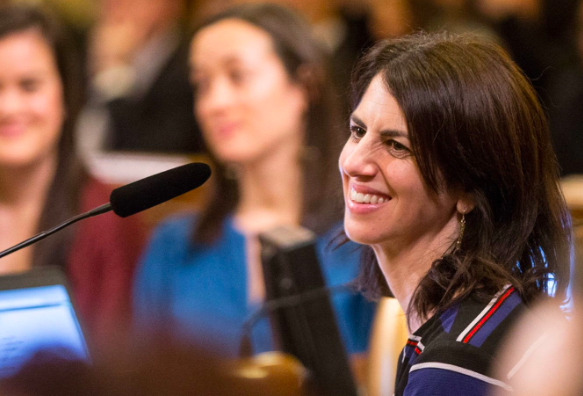San Francisco could have a comprehensive public broadband system at a cost of about $35 a resident, city officials said this week.
At a hearing on the city’s future technology infrastructure plan, Sup Hillary Ronen asked whether the Committee on Information Technology had any plans to build out a public system.

The committee is already providing municipal broadband to 7,000 low-income housing projects. That’s wonderful, Ronen said – but can’t the city provide cheap Internet for all?
“Has there been any thought … on public municipal broadband, and whether it’s worth bonding? It seems like it would pay for itself in not a huge period of time, and we could offer cheaper internet to everyone.”
Linda Gerull, the city’s chief technology officer, said that her department has done an economic study on the issue. The total cost would be around $2.3 billion, she said. “We did look at payback and management and how that would work. The cost per resident would be about $35.
“We are trying to go right now where there is nothing,” she said. “Our focus right now is on the unserved areas.”
Ronen asked Brian Strong, the director of the city’s Capital Planning Office, what the issue is; is this about a lack of bonding capacity?
“What I’m talking about is similar to what we’re talking about with energy, taking over PG&E to provide public electricity. Why aren’t we we shooting for the moon with this, when it would pay for itself? What is stopping us?
Strong said that “$2 billion would put us well over our bonding capacity for the next ten years.” But the current ten-year plan calls for almost $38 billion in new bonds; the money for a full broadband system, which would pay for itself pretty quickly and would provide cheap Internet to everyone, would amount to just 5 percent of that.
Besides, that money is allocated for what are called general-obligation bonds – borrowing that is backed by the tax revenues of the city. The Public Utilities Commission has the authority to issue revenue bonds – backed not by the taxpayers but by a projected stream of income, in this case from selling broadband.
“Could this be a revenue bond, which would remove that limitation?” Ronen asked.
“It could be a revenue bond, likely coming out of the PUC,” Strong said.
In other words: If the Mayor’s Office, which controls the PUC, wanted to pursue public broadband in the same way that the city is now on track to pursue public power, it would be entirely possible.
The discussion now moves to the full board Tuesday/13. Maybe the supes can ask the CPUC about this.



